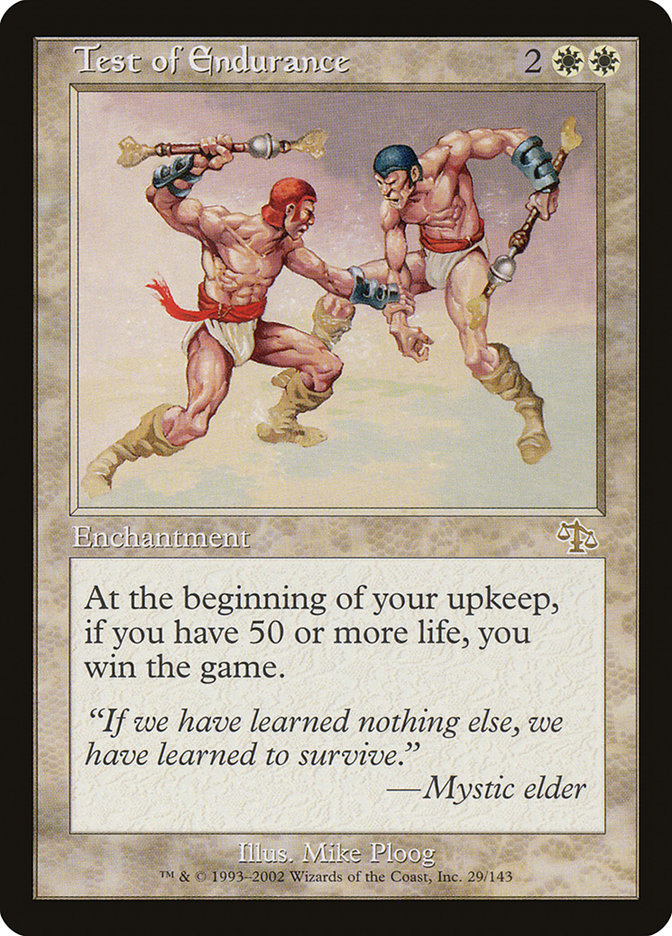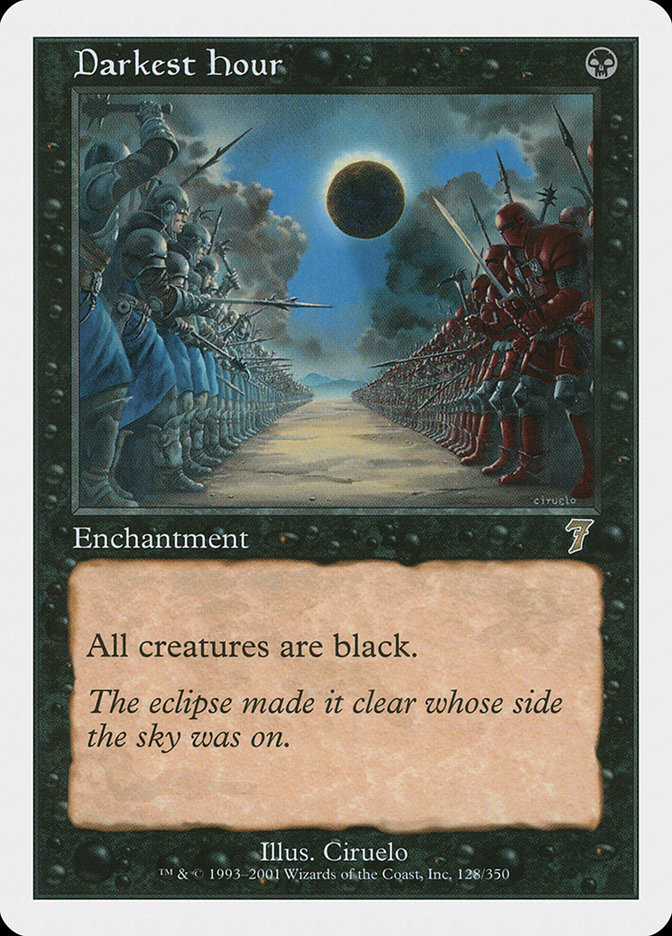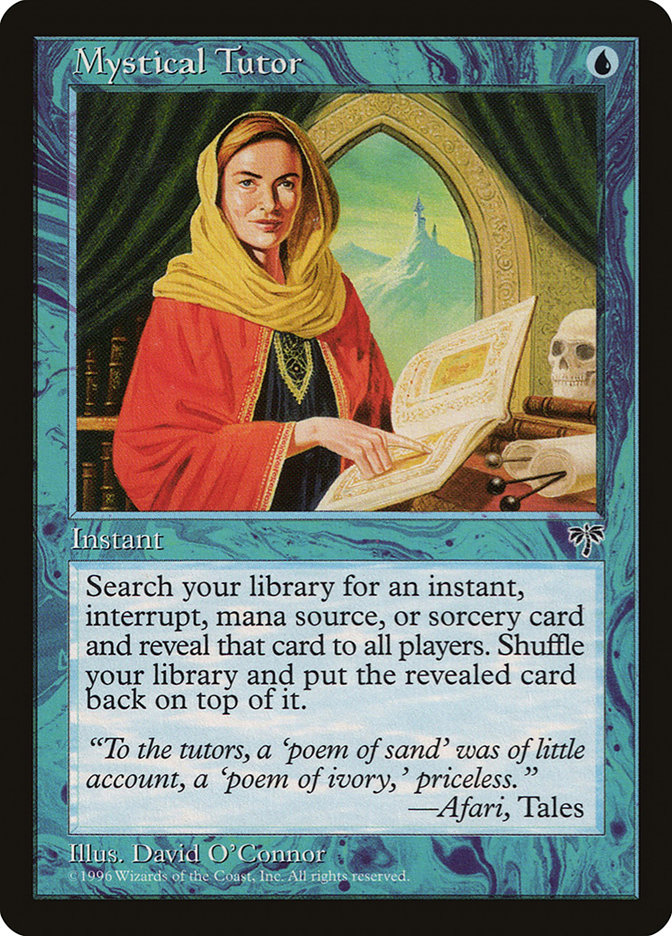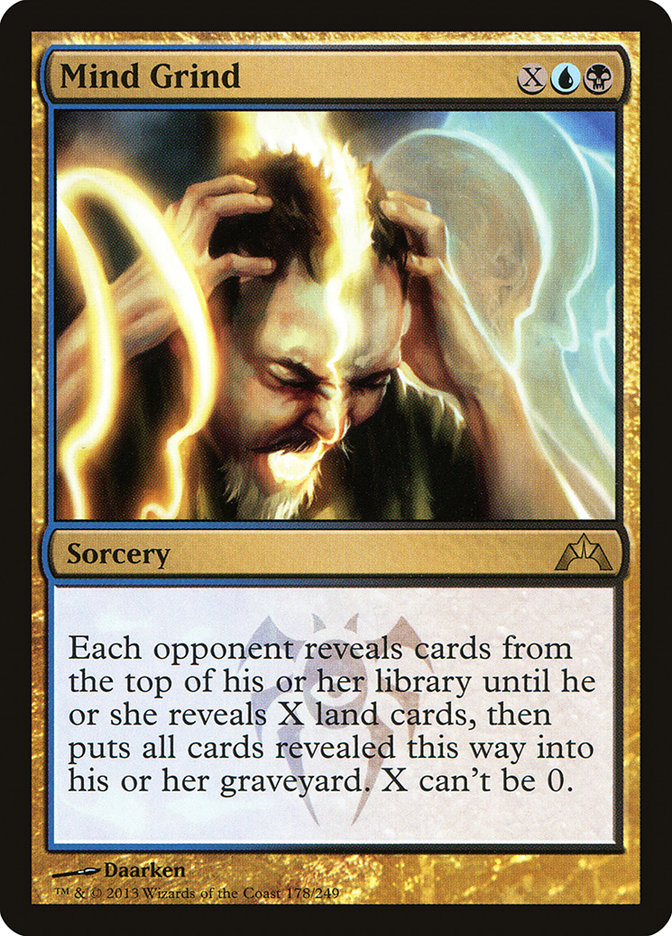In any competition, sometimes it’s your day and sometimes it’s not. That goes doubly so for a game with as much variance as Magic has. I made my share of mistakes a little over a week ago at Pro Tour Amonkhet in drafting, gameplay, and deckbuilding, but it takes an especially bad run of luck to finish with the dubious record of 5-10-1.
First, in order to even have the chance to rack up that many losses, you have to frontload your wins. I entered the second day of competition with a mediocre record of 4-3-1, but there was still plenty to play for in terms of Pro Points and Pro Tour invites.
On top of that, I drafted a fine deck in the second draft and took down my first round with the help of a one-outer Fling for exactly lethal in the first game of the match. With an auspicious start like that, I thought I could be in store for a great day, but if you’ve done the quick arithmetic, you already know that that was the last win I would register in the tournament.
Losing seven consecutive matches sounds grueling, but let me assure you of one thing:
It’s exactly as grueling as you’d think.
I played a rather stock Temur Aetherworks deck, but my spins on the roulette wheel were rarely kind, if I had a chance to spin at all, given how many mulligans I took and how many copies of Ulamog, the Ceaseless Hunger naturally floated into my hand. Given my long-suffering experiences with Progenitus in Legacy Elves, you think I’d be apprehensive at playing another deck with dead cards in the early-game, but you can’t let the past influence your thought processes like that. I played the deck I thought was best and came up empty.
Naturally, I left Nashville disappointed. For the second straight year, I find myself scrambling to hit Silver despite beginning the season with a realistic shot at Gold, and this year, I’m even further from retaining my status, with a scant fifteen points despite playing in all three Pro Tours this season.
After a poor 2016 which was only salvaged by a solid few weeks with Modern Dredge before everyone caught on to the deck, 2017 has not been the bounce-back I was hoping for, leaving me in a rather introspective mood.
The topic of losing streaks and how to get over them (or through them, depending on your preferred preposition) is well-covered in Magic writing because it’s so universal. I’ve certainly covered it in my column several times over the years, but there’s a part of it that I think most people miss: the importance of first understanding the problem.
Everyone is singularly focused on what the solution is. They just want to get over it as quickly as possible and will often look to the advice of others in order to do so.
Interestingly, this race to the answer is common in other areas of Magic as well. Magic players are notorious for copying decklists, sideboard guides, and play patterns without understanding them. As a result, they fail to adjust from their prescribed plays when appropriate, thereby losing some if not all of the advantage that they gained by picking up an already tuned deck.
You could say that’s a human reaction to reach toward instant gratification, but I don’t want to digress into the realm of pop-psychology any more than I already have. Suffice it to say that we don’t spend enough time examining and understanding the problems we face in order to devise a real solution.
My own attempts to unpack the problem during my downtime last weekend were largely not fruitful, but I did have an enlightening conversation on the ride back to Roanoke with former World Champion Seth Manfield.
A Quick Note About Seth
He is one of the most naturally gifted players I know, enough so that he suffers from an issue common to those who are far advanced from their peers: his understanding of the game is so intuitive to him that he can struggle to explain the thought process behind a certain play or draft pick. Granted, I haven’t worked closely with Seth in over a year and I wouldn’t be surprised if he’s made great strides in unpacking his own knowledge of the game since then, but the point here is that my experience with him has taught me to listen closely to what he says, because wisdom that he may find ordinary could be epiphanic for a mere mortal like me.
Seth had a solid result in the tournament, finishing with an 11-5 record after a self-admitted string of poor performances. Unfortunately, that 11-5 record came after a last-round loss to Eric Froehlich that would have put Seth into his third Pro Tour Top 8, an accomplishment that, along with his World Championship title, would have put him in the conversation for the Hall of Fame.
I think we call all relate to the sting of a near-miss, as well as understand that such a sting is magnified when there is so much on the line. No one would have faulted Seth for feeling down and disappointed in that moment, but instead he was content and optimistic, happy to have just had the chance to play such an important match of Magic against another world-class player.
Immediately, Seth’s words reminded me of a similar experience I had last year after after losing a win-and-in match for Top 8 of the Season One Invitational in Atlanta. At the time, I had been going through a losing streak, and despite losing a high-leverage match, I was happy enough to be smiling as I extended my hand to my opponent. Before or since, I have not had a comparable moment, and as a result, explaining exactly what happened in that moment was difficult, but Seth’s similar reaction in an even higher-profile spot was illuminating to say the least.
Seth remarked that he was simply happy to have been in that position after a long streak of middling finishes, which was similar to my feelings after the Atlanta match, which got me to thinking more deeply about the nature of competitive Magic.
Almost all major tournaments now have two days of Swiss rounds with a cut between the two days. This divides the tournament into two groups: one that flames out quickly, and one that can compete for the entire weekend. The second day further stratifies the field, as a few players make deep runs toward the Top 8, while those that lose early in the day are in a position where they are playing out all of their rounds but only fighting for some money or points.
Those of you who don’t play a lot of high-level Magic may not have fully experienced the difference, but let it be clear that those X-3 and X-4 brackets on Day 2 are not an exciting place to be. Top-level players play twenty, 30, even 40 tournaments a year, and when we talk about the matches and the places blending together after a while, we’re talking mainly about these matches.
The matches in the X-1 and X-2 bracket, however, are highly charged. You’re often playing against the best players in the room and the margin for error is slim to none. The increased level of excitement naturally produces a lot of adrenaline for both players. And that’s the key. Adrenaline.
The grind of traveling to tournament after tournament and practicing on MTGO or with teammates for hours on end is exhausting, and the payoff we get from that work is a hit of adrenaline.
We all know how varied a game Magic is, how different people can find their niche in the community in ways from playing, to collecting, to deckbuilding, to altering cards, to producing content on any or all of these aspects of the game. The fantasy theme of the game is so central to it that most people I think incorrectly assume that high-level players got into the game due to a love of fantasy. But in my experience, players at the highest levels share one common trait: a love of competition.
Many players come from a background of playing sports as a kid, or other, more ubiquitous games like chess and poker. I was a varsity tennis player and mathlete in high school, two areas you wouldn’t think to find much overlap, but I love to compete, and Magic has been the best outlet for that because of how many components there are to it and how dynamic it is. I think if you were to poll other regular Pro Tour competitors, you’d find a lot of similar personalities.
As a result, playing tournaments is about more than winning money. Money is just the means to an end. I and those like me are playing to test our skills against the best in the room and hopefully come away with a trophy. An adrenaline rush when you play high-leverage matches is a physical affirmation that you’ve reached the precipice of that goal. Conversely, the doldrums of the X-4 bracket are a physical admission of defeat.
Living in those doldrums week after week only exacerbates the grind of traveling and preparing. Your energy is already sapped before Round 1 of the tournament. The adrenaline keeps you going, not only into the Top 8 after a long weekend of battling, but to the next city, the next hotel, and the next MTGO League.
Competition is a drug in that sense and we’ve all become addicted to some level. A common piece of advice in articles like these is to focus only on your own play and not the outcome of the match, since the former is all that is completely under your control. That’s good advice for analyzing your play objectively and improving, but no one would be satisfied with that alone. No one would take a genie’s offer to guarantee perfect play and a mediocre finish at every tournament forever; what would be the point?
We even build up a tolerance to the adrenaline over time. Once you’ve conquered a hurdle enough times, whether it’s Top 8 at FNM, Day 2 of an Open, or qualifying for the Pro Tour, the accomplishment loses some of its luster. You need to conquer bigger, better lands to get the same adrenaline rush. It’s that tolerance that often leads to entitlement, one of the worst mental afflictions that Magic players face.
There is one other aspect to this adrenaline rush that came up with my conversation with Seth. Important to Seth not feeling the same sting after losing his win-and-in was that he was happy with his level of play. I know I dismissed that to an extent above, but only in the most extreme case. When you’re breaking a cold streak, it’s important to feel like you’re properly earning your accomplishments, rather than riding an unusual streak of positive variance.
For me that was also true last year in Atlanta, and importantly was not true at last year’s Modern Open in Syracuse, which I won with Dredge. Both my list and my level of play in that tournament left much to be desired, and in spite of those facts, I was left standing with the trophy. Unsurprisingly, the adrenaline high of that tournament was particularly short and it did little to quell the confidence issues that come with a prolonged losing streak.
Everyone who plays or even watches competitive Magic understands how significant the element of variance is, and the impostor syndrome that comes with undeserved success counteracts most if not all of the positive effects of the initial adrenaline rush. Rather than leaving happy and fulfilled, you leave the table disappointed in how you’ve represented yourself and maybe your team. You leave with the same self-doubt with which you entered, perhaps even magnifying those feelings.
Is this dogged pursuit of adrenaline through competition particularly healthy? Probably not. But I don’t think it’s that dissimilar from the normal human condition. We’re all seeking some professional fulfillment, a high of some sorts that comes with succeeding, wielding some level of influence, and commanding some level of respect in a field we are passionate about. Some have higher standards than others and there are issues with both extremes, but the drug metaphor I’ve presented here, while potentially alarming on the surface, looks quite normal to me under further inspection.
And that normalcy means that unpacking all of this has had a limited effect on my mental state going forward. I’m still nervous about hitting Silver and unsure of myself after a fourth consecutive failed Pro Tour, but these words represent important progress. They are steps toward a more permanent solution rather than a Band-Aid. I, and I hope all of you, have a much greater understanding of the problems we all face when dealing with losing streaks, and given the magnitude of those problems, any amount of progress is significant.
So you’ll see me at the tables again soon enough, and hopefully sometime soon I’ll get to feel that sweet, sweet adrenaline again.







